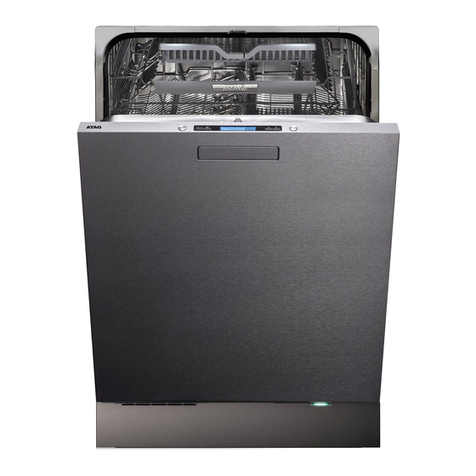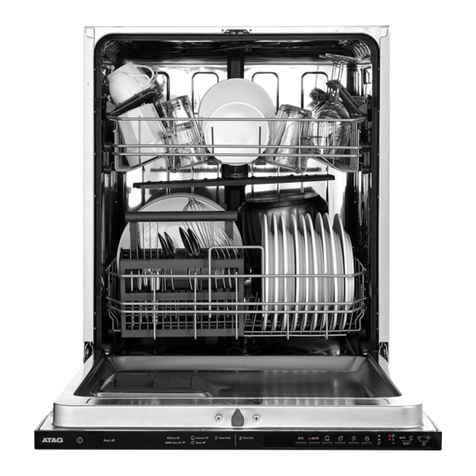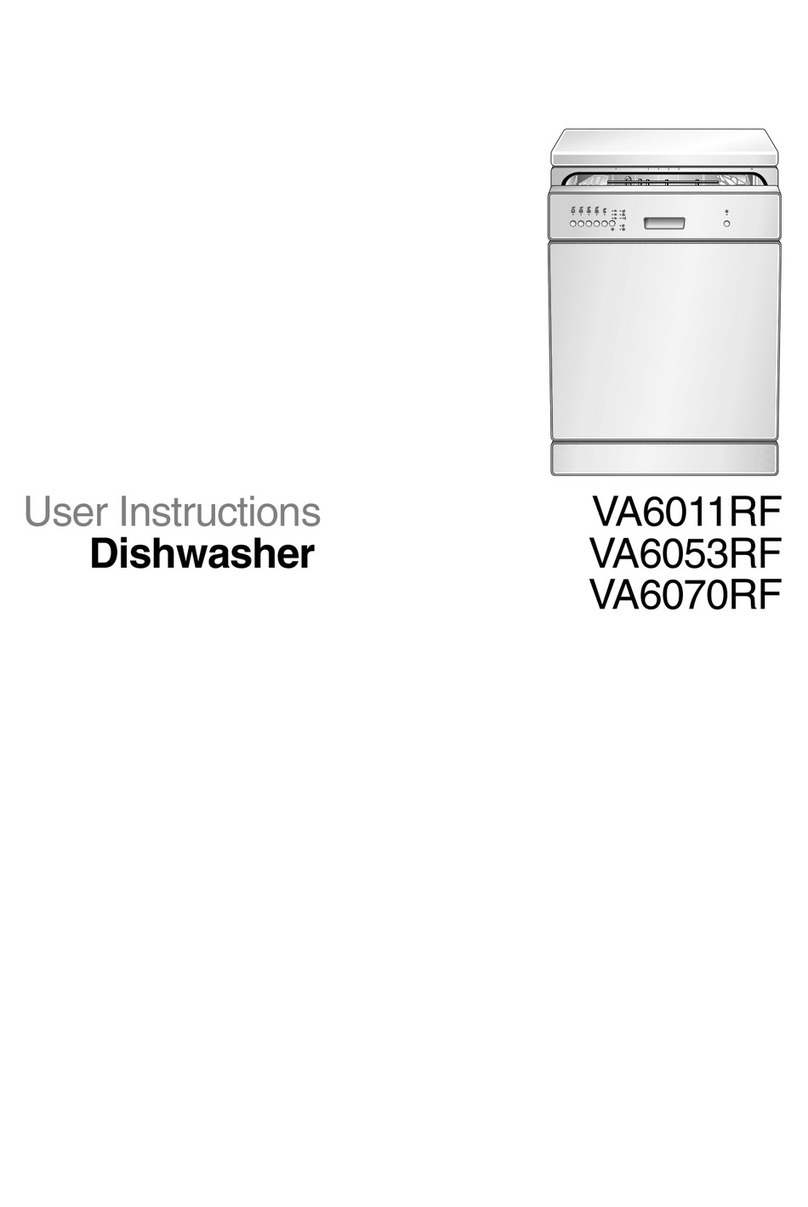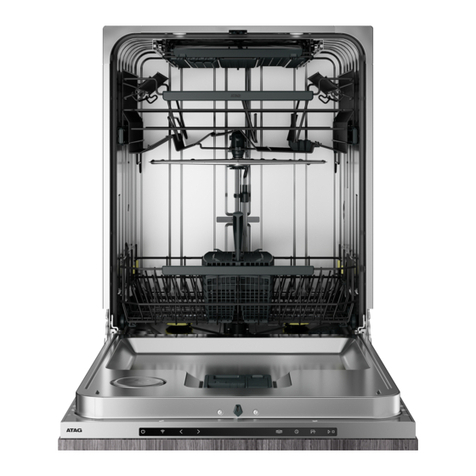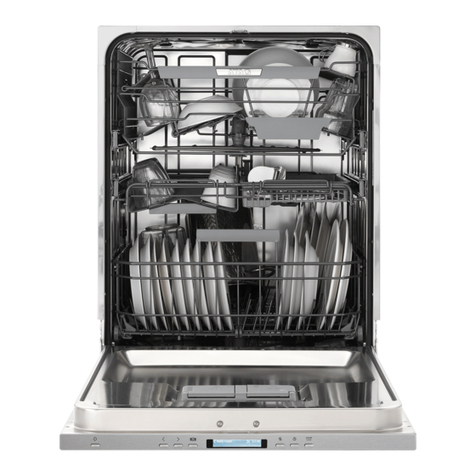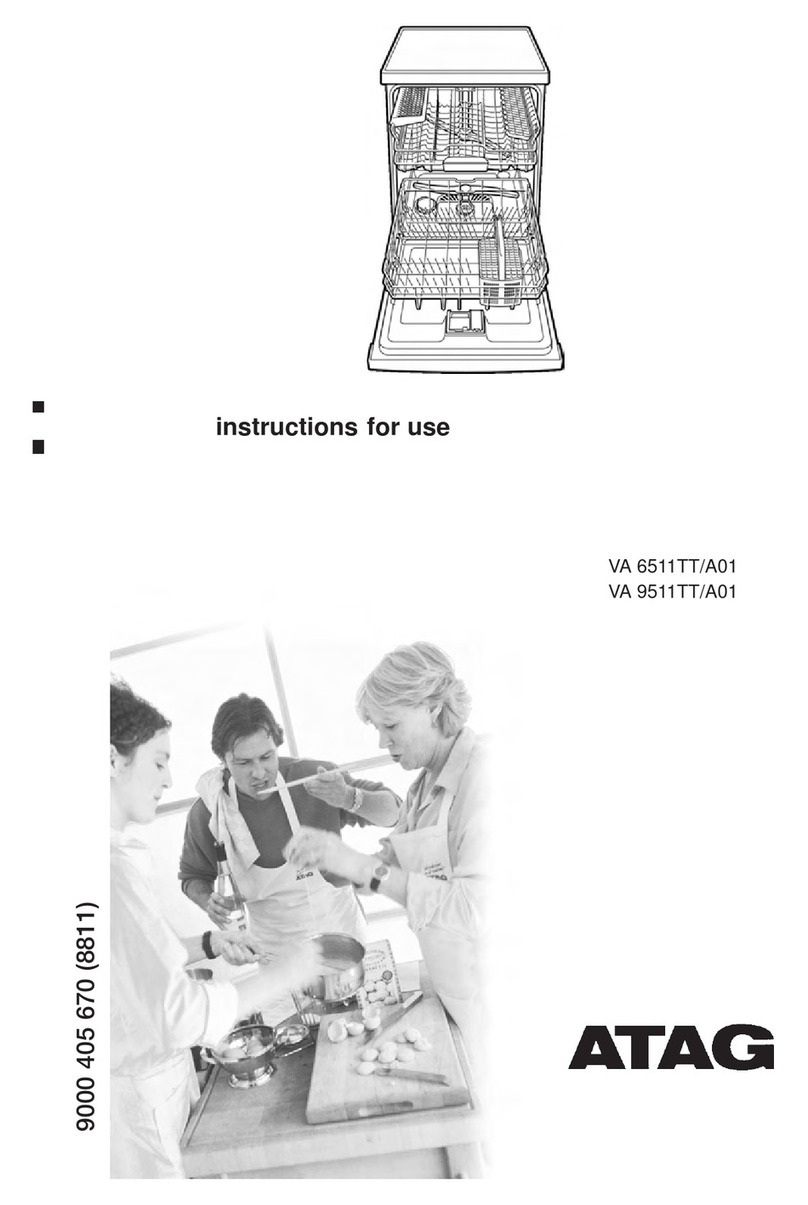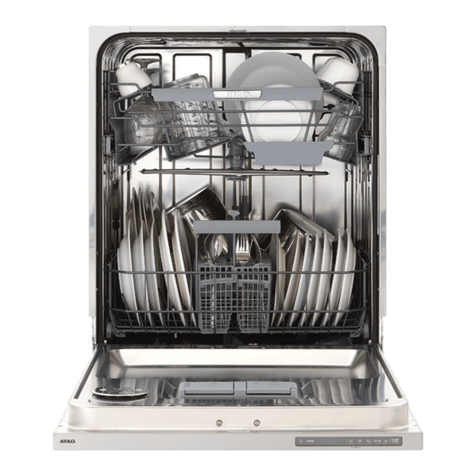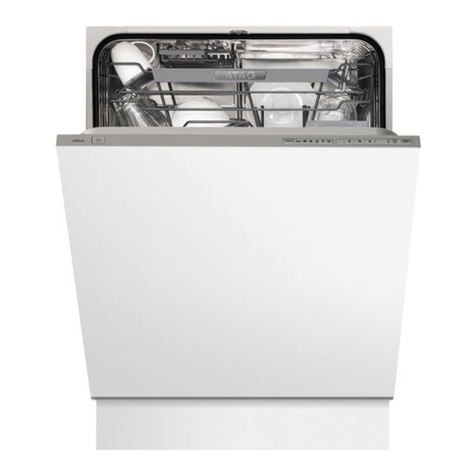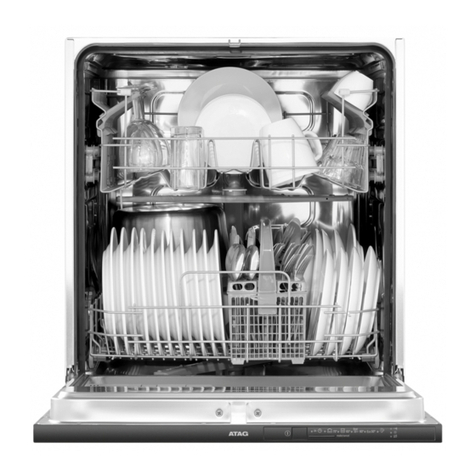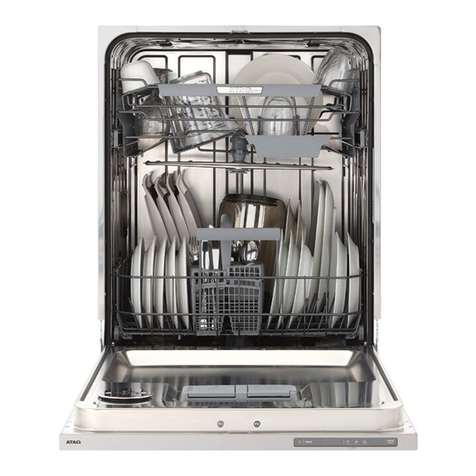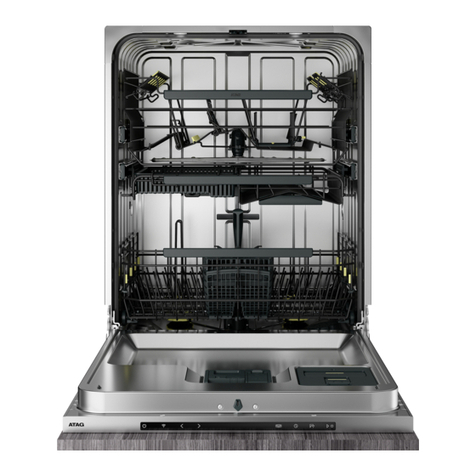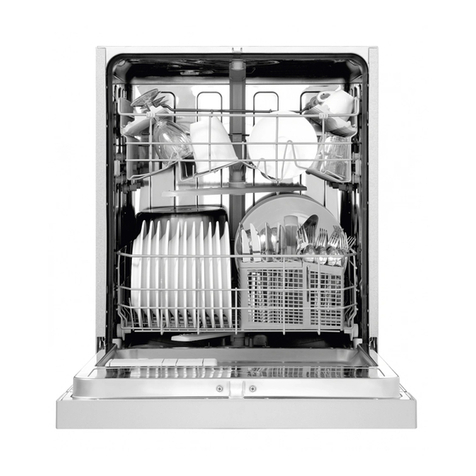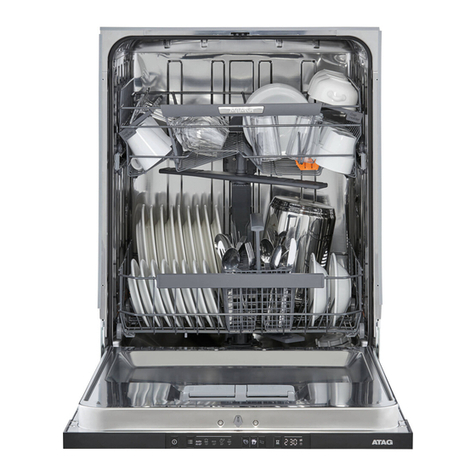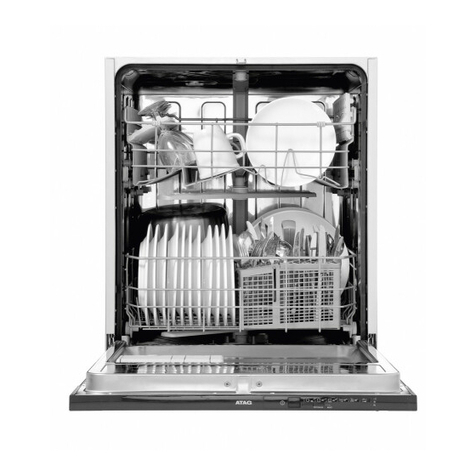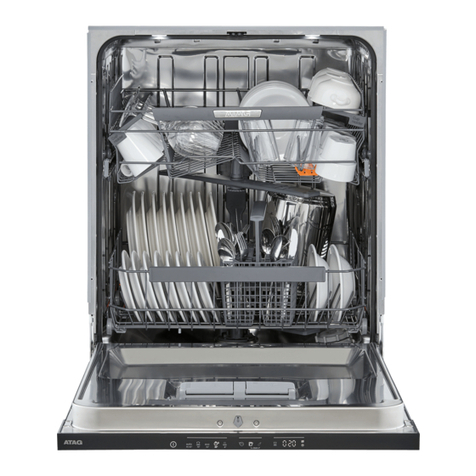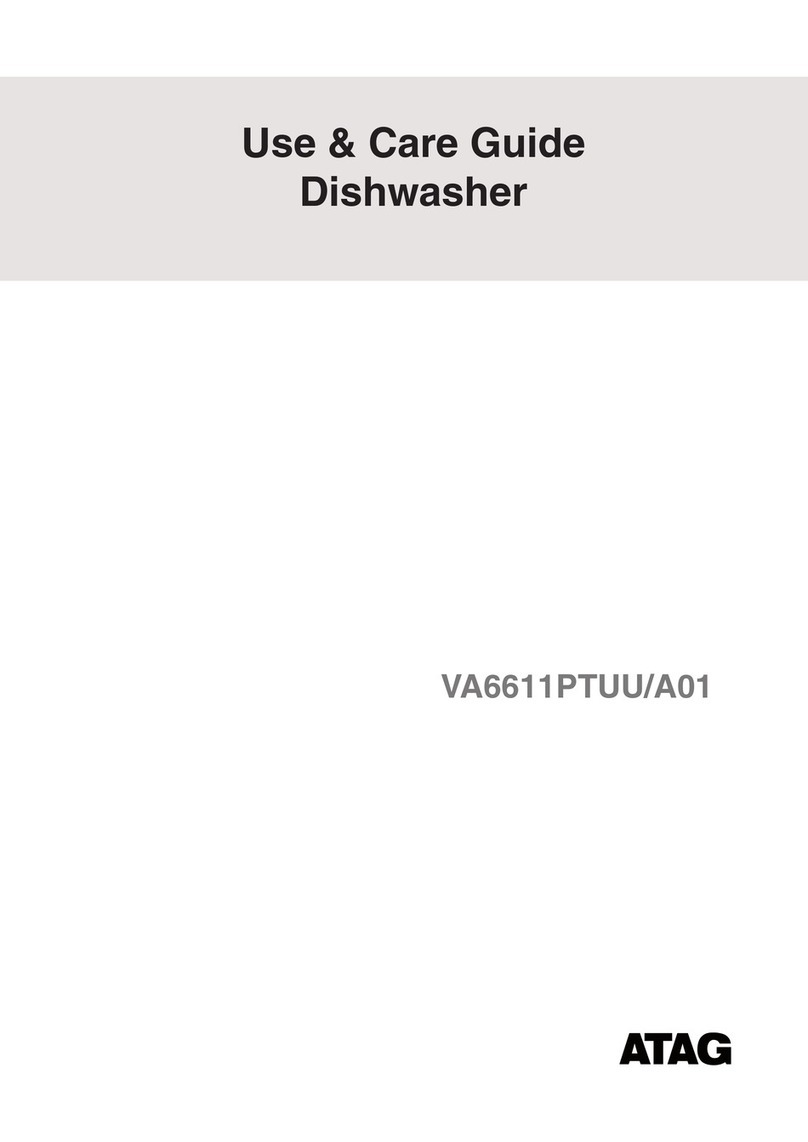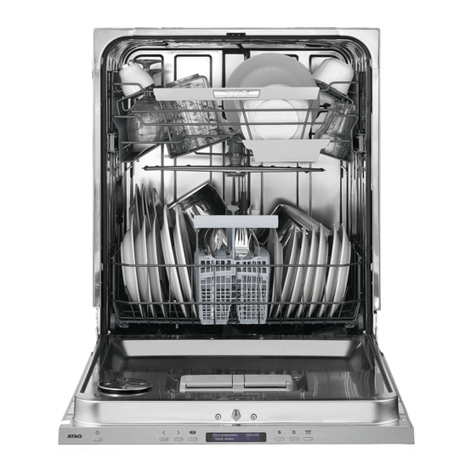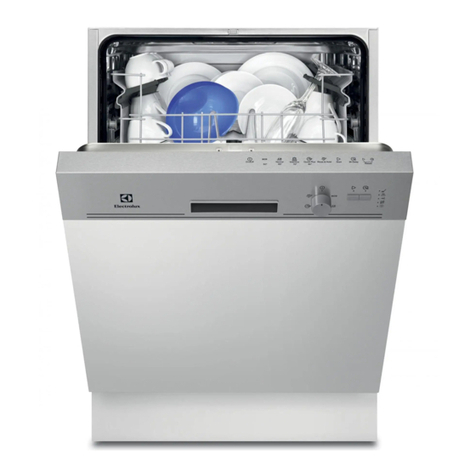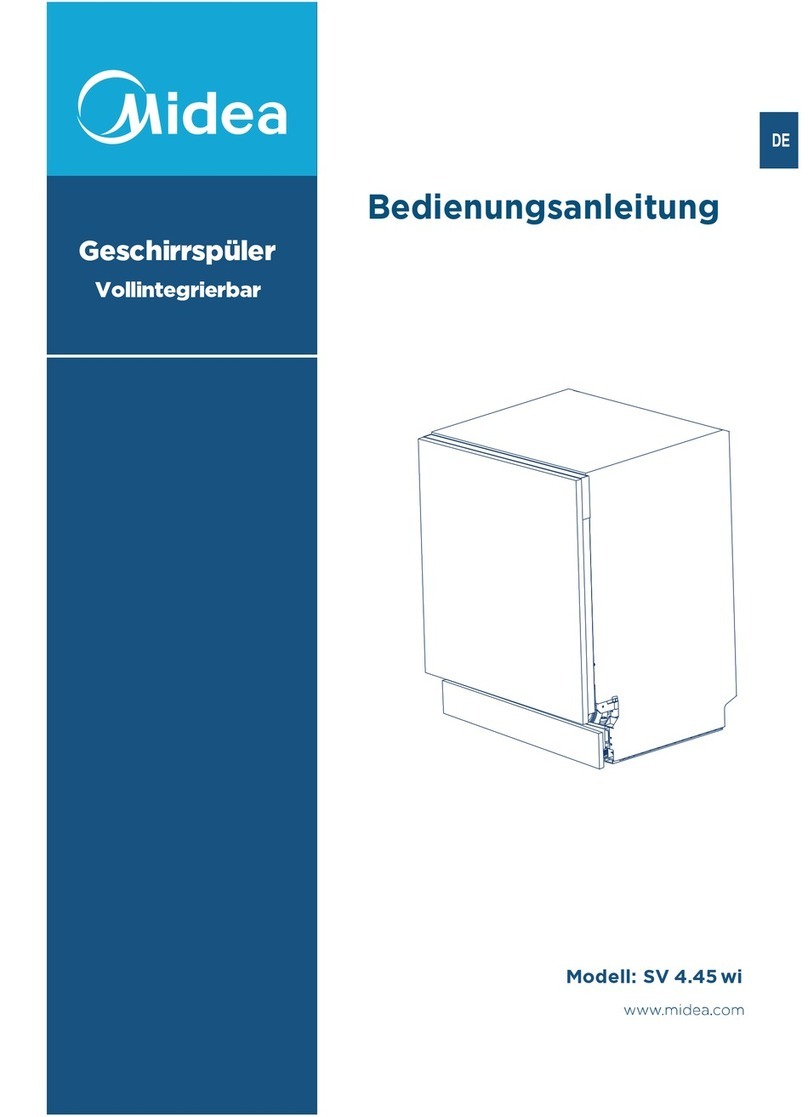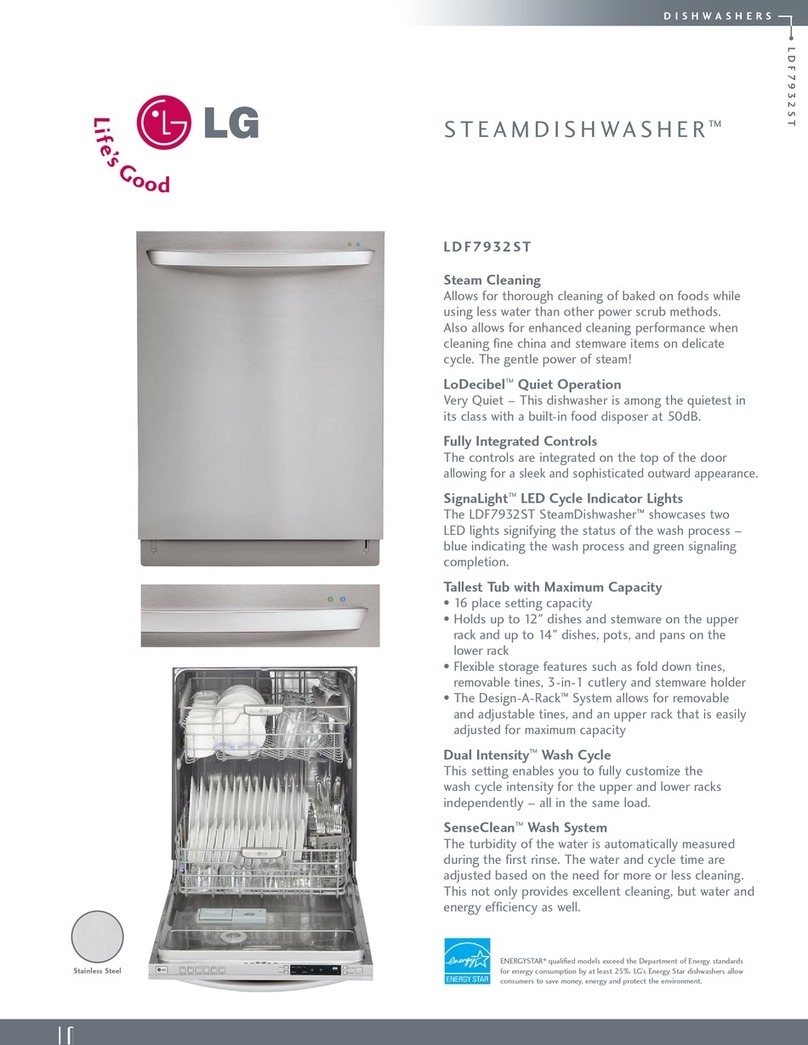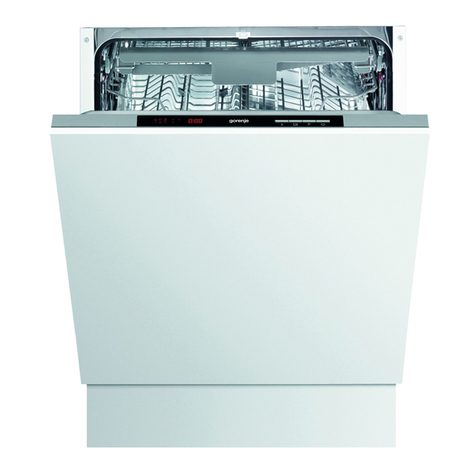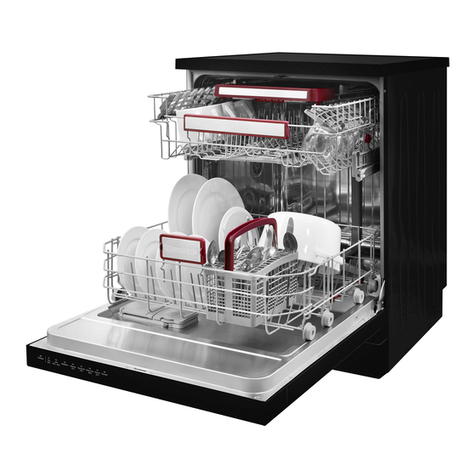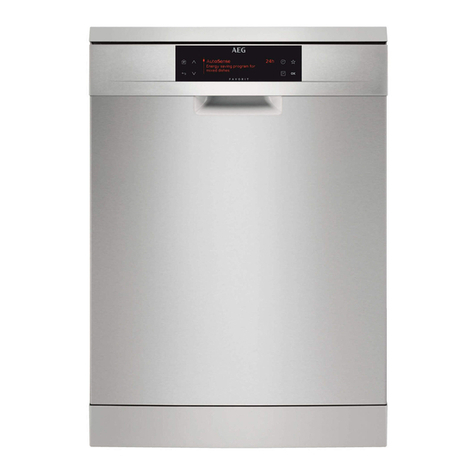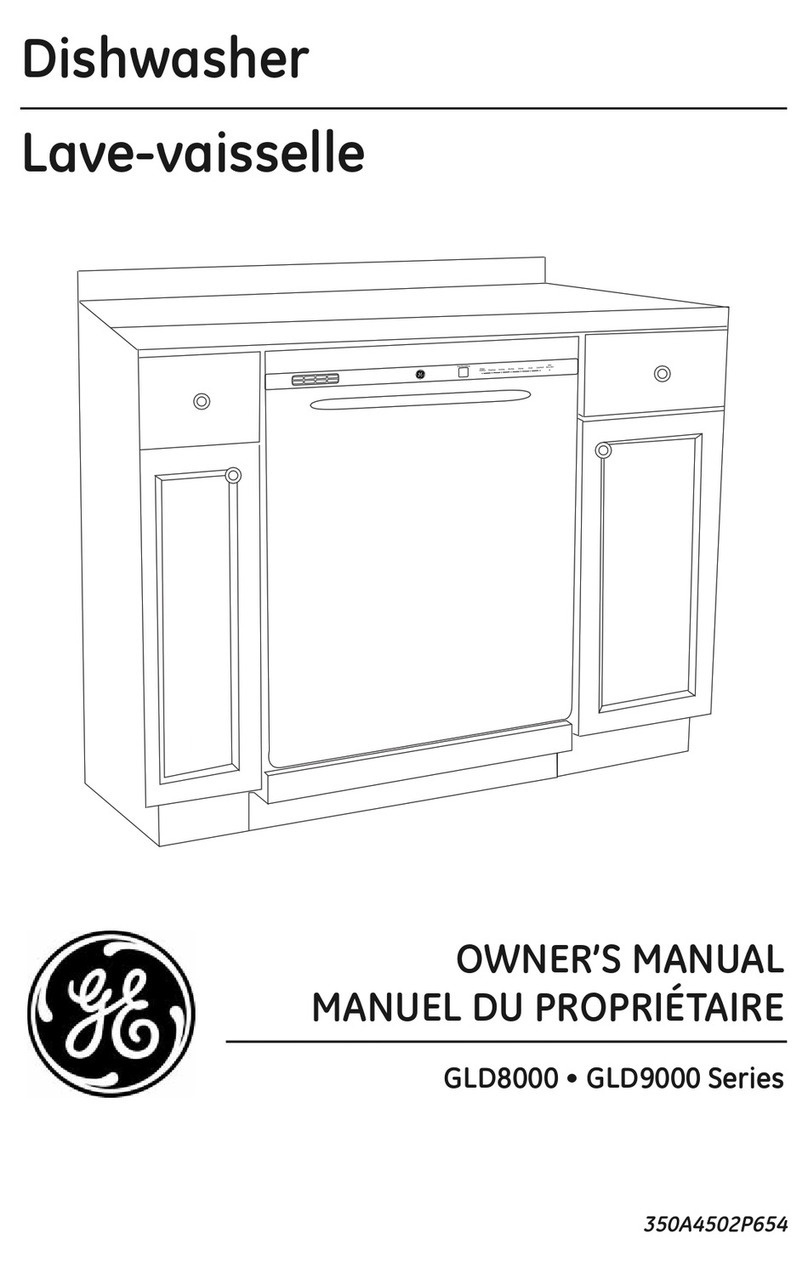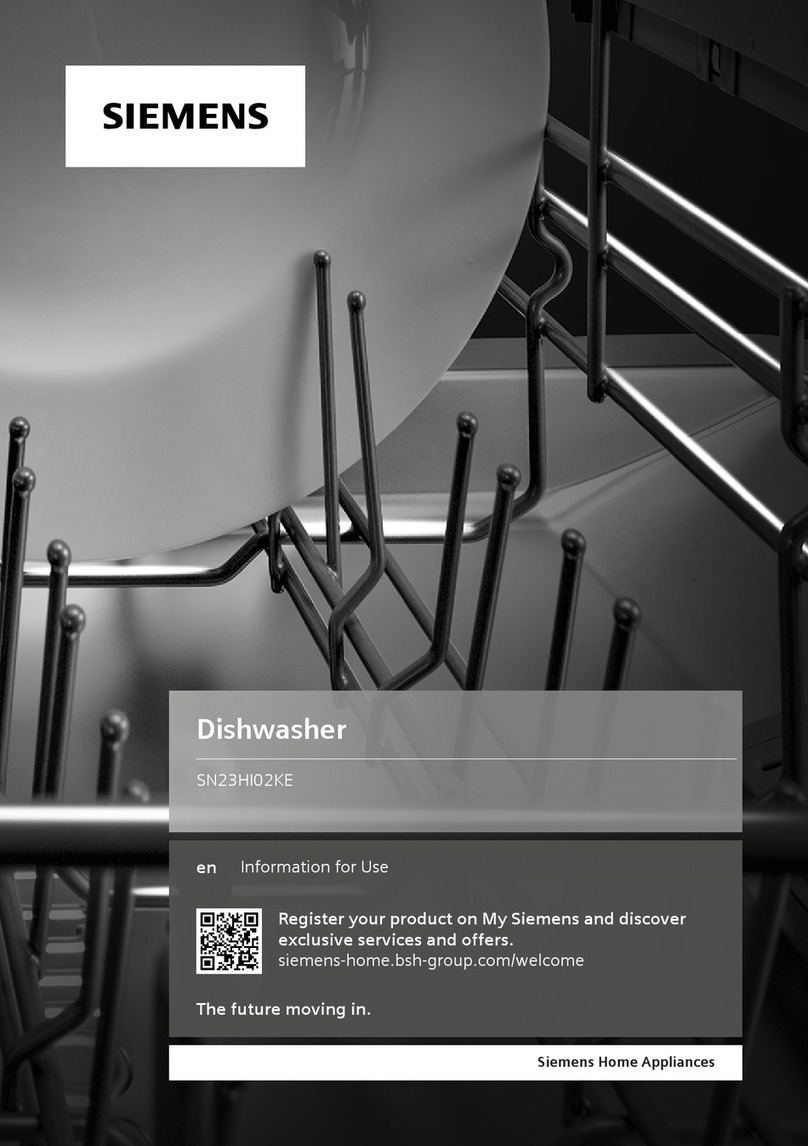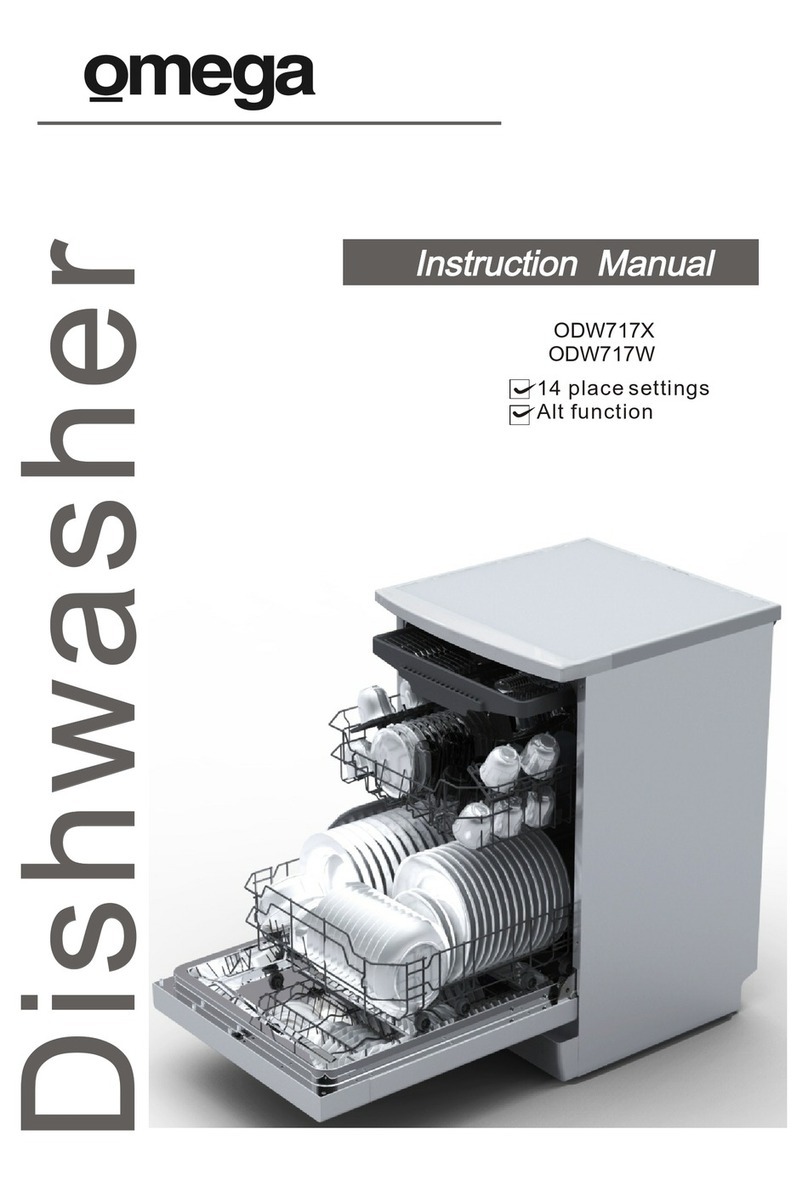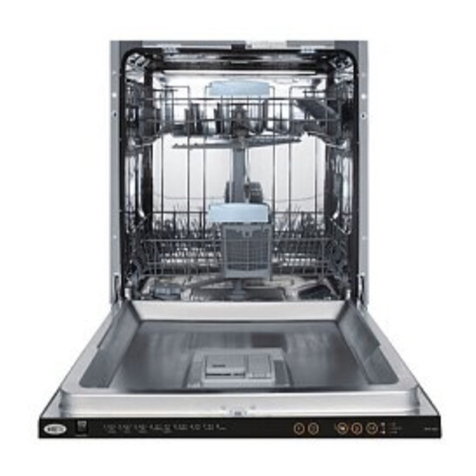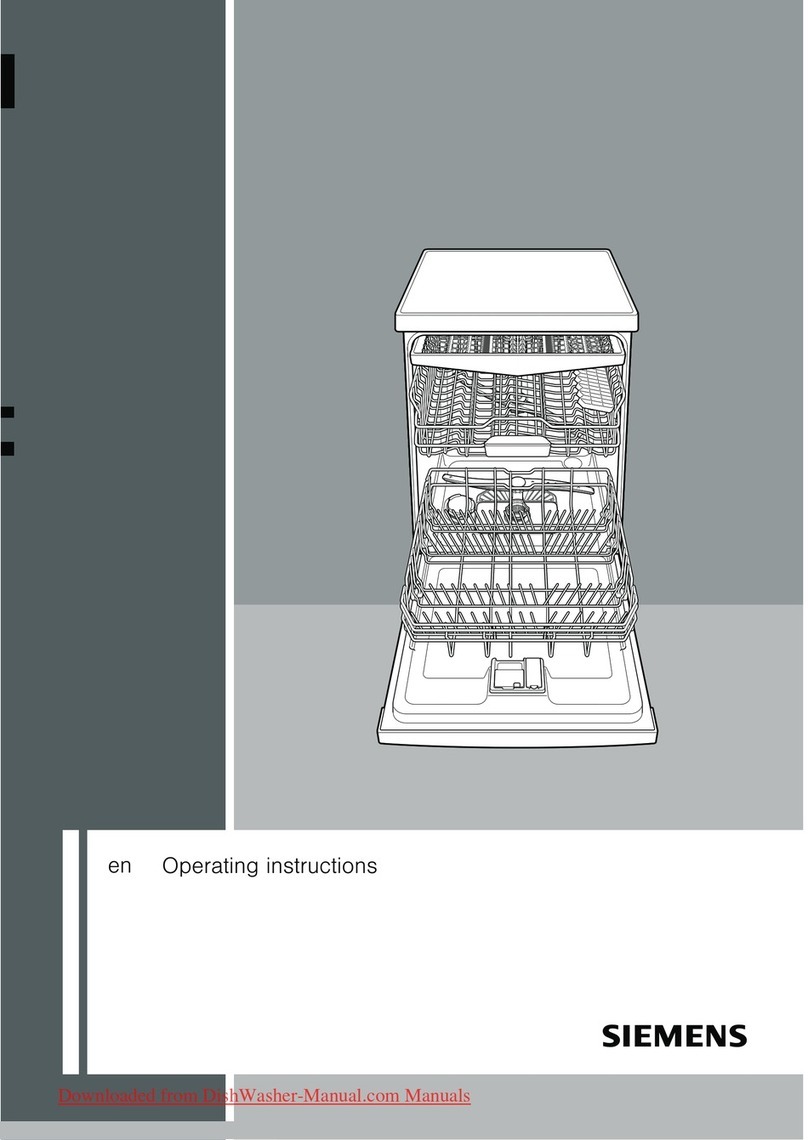
General
• Read the operating instructions and keep them in a
safe place!
• Never use the dishwasher for any purpose other than
that specified in these operating instructions.
• Do not load the dishwasher door or dishwasher
baskets with anything other than dishes.
• Never leave the dishwasher door open as someone
may trip on it.
• Use only dishwasher detergent!
•Place knives and other sharp items so that they cannot
harm anyone or damage the dishwasher.
• The machine is not designed to be used by persons
(even children) that are physically or mentally
handicapped or lack experience and knowledge. Such
persons must receive instruction in how to use the
machine from the person responsible for their safety.
• Children must be watched to ensure they do not play
with the dishwasher.
• Damaged mains cables must only be replaced by a
qualified electrician.
• This dishwasher is for household or similar use, such
as:
- staff kitchens in shops, offices and other
workplaces.
- farms.
- for guests at hotels, motels and other types of
accommodation.
- bed & breakfast hotels.
• Never place dishes with solvent residues in the
dishwasher due to the risk of explosion. Nor may
dishes that contain ash, wax or lubricants be washed
in the dishwasher.
Installation
See the section Installation.
Winter storage/Transport
• Store the dishwasher where the temperature remains
above freezing.
• Avoid long transport distances in very cold weather.
•Transport the dishwasher upright or laying on its back.
Overflow guard function
The overflow protection starts pumping out the machine
and turns off the water supply if the water level in the
dishwasher exceeds the normal level. If the overflow
protection is triggered, turn off the water supply and call
the service division.
Cleaning
When cleaning the edge around the door, use only a
slightly damp cloth. Do not spray water around the edge!
Moisture can make its way into the lock, which contains
electrical components.
Packing material
Please sort waste materials in accordance with local
guidelines.
Disposal
• When the dishwasher has reached the end of its
service life and is to be disposed of, it should
immediately be made unusable. Pull out the power
cable and cut it as short as possible.
• The dishwasher is manufactured and labelled for
recycling.
• Contact your local authority for information about
where and how your dishwasher should be correctly
recycled.
4
Safety instructions
